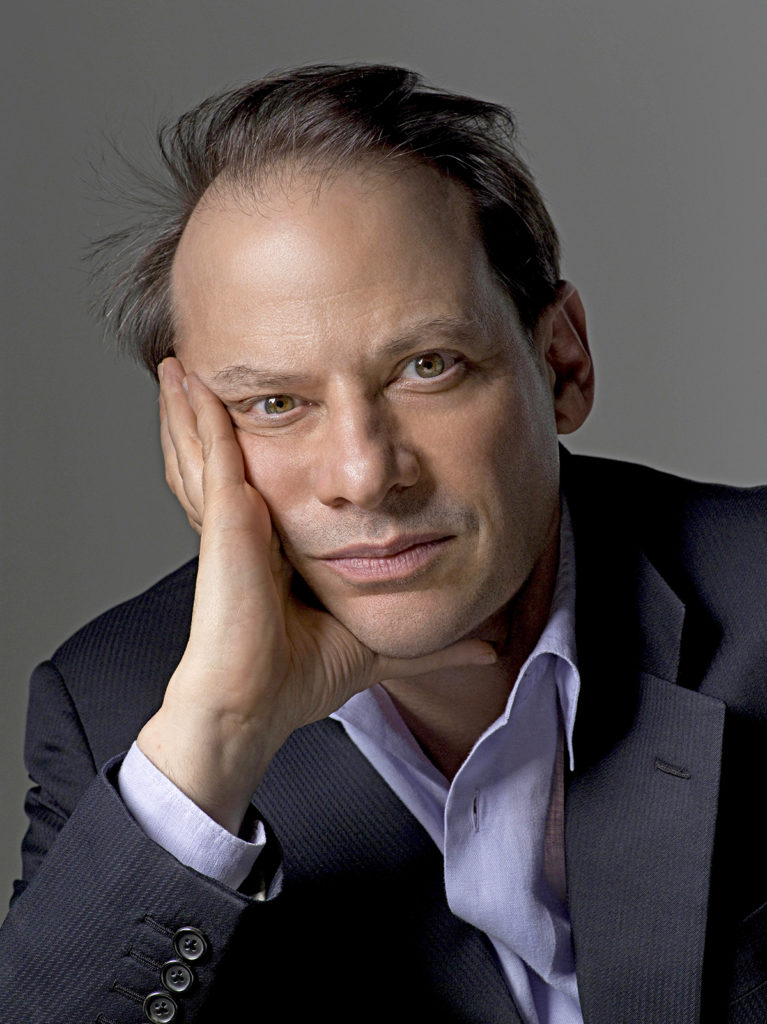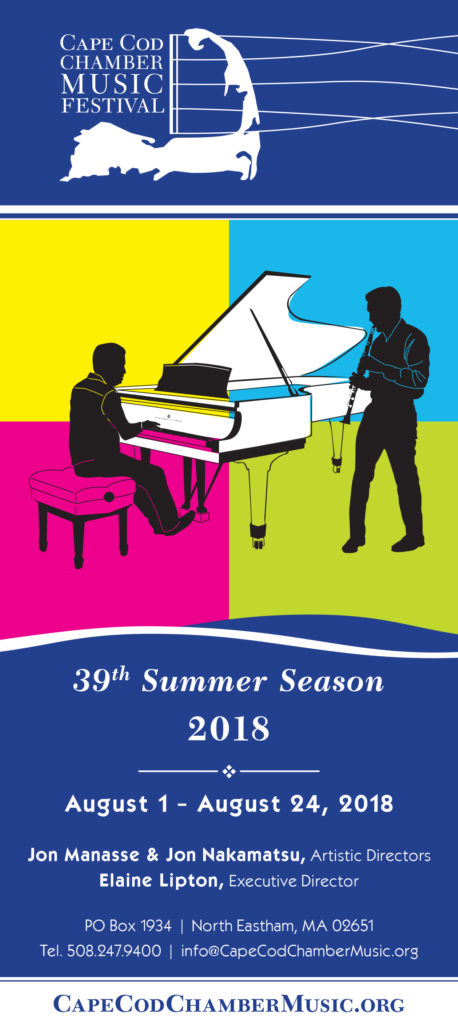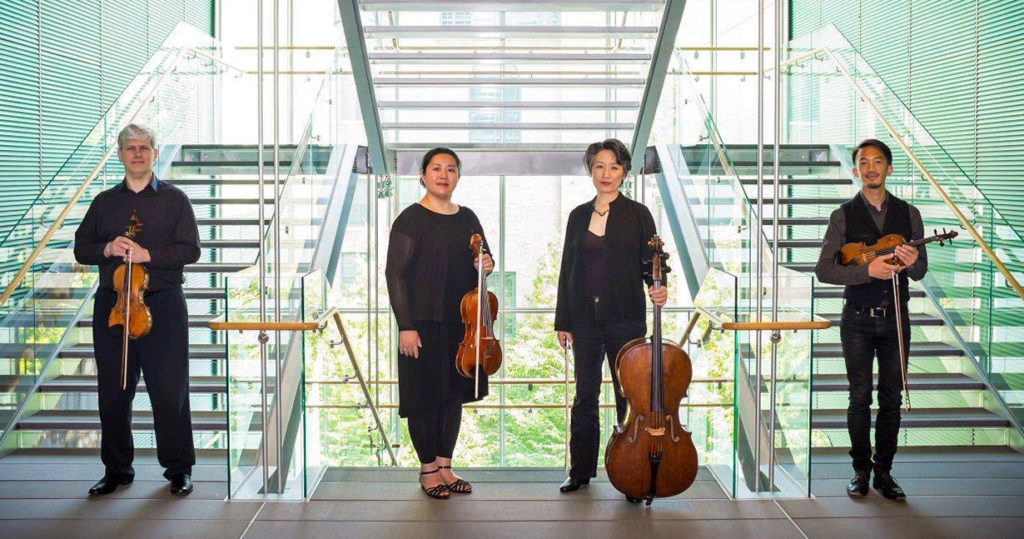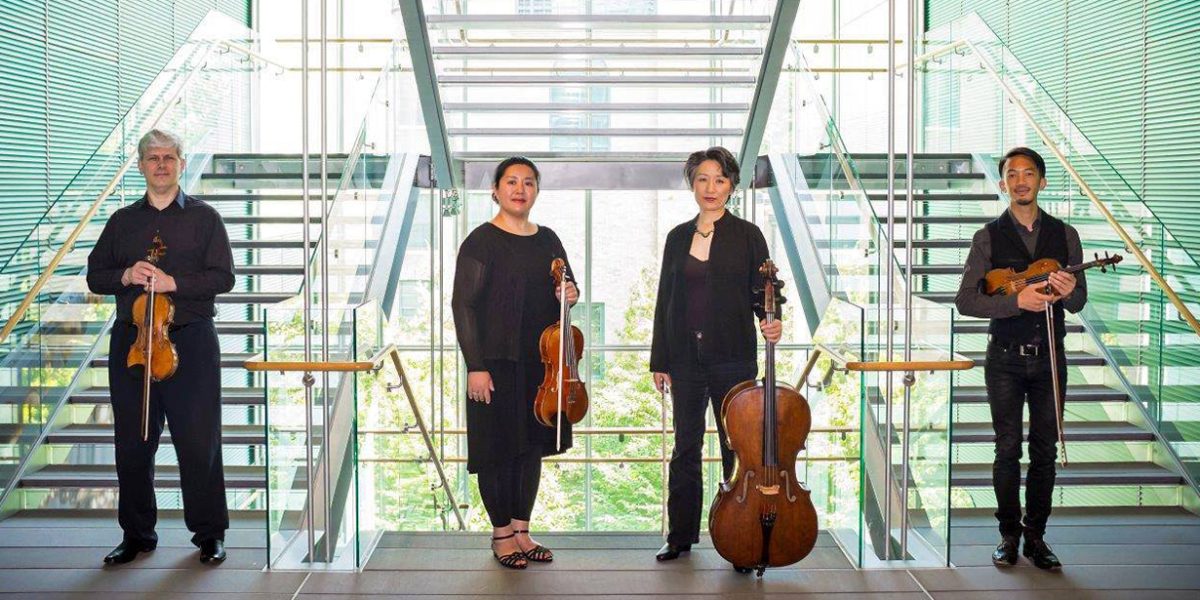
PROVINCETOWN BANNER – “I’ve been coming to Wellfleet every summer since 1986,” Adam Gopnik, staff writer for The New Yorker magazine, says, “but this is the first time I’ve been asked to perform here.” He is referring to the performance of Franz Schubert’s magnificent octet in F major on Friday in Wellfleet, part of this summer’s Cape Cod Chamber Music Festival.
Gopnik, the author of “Through the Children’s Gate,” “The King in the Window” and other books, won’t be playing the viola or the bassoon on the stage of the Congregational Church on Friday evening. In a highly unusual collaboration, he will be reading, between the movements of the octet, from an original evolving narrative about his own personal relationship to Schubert’s music, which will be played on this occasion by the Borromeo String Quartet (Nicholas Kitchen, violinist; Kristopher Tong, violinist; Mai Motobuchi, violist; and Yeesun Kim, cellist) and clarinetist Jon Manasse, bassoonist Cynde Iverson, French horn player Eric Reed and bassist Tony Falanga.
The idea originated with members of the Orchestra of St. Luke’s, and Gopnik, with some trepidation, accepted the invitation and joined the musicians for three performances in New York City last year at the Caramoor Music Festival, the Morgan Library and the Brooklyn Museum.
“I’ve always had a passion for Schubert, and I’ve always loved that piece,” Gopnik says. “But I was terribly apprehensive about doing it. It’s an act of insane presumption that anyone would desire to listen to me in between movements of this sublime Schubert. But people seemed to genuinely enjoy it. What I was describing was a very personal and autobiographical connection to this music. I was talking to the musicians in a way the audience recognized. We did a Q and A at the end with the audience, and everyone had a story to tell.”
 The four separate pieces of the narrative, he says, will take the form of four different genres of writing he works in: first, a personal essay; then, a story that he will make up on the spot; next, a critical essay about Schubert and winter; and finally, a lyric that he wrote about his son.
The four separate pieces of the narrative, he says, will take the form of four different genres of writing he works in: first, a personal essay; then, a story that he will make up on the spot; next, a critical essay about Schubert and winter; and finally, a lyric that he wrote about his son.
“When my son was little, I played the octet and the B-flat major piano trio for him,” says Gopnik. “They were his lullabies.”
It was Manasse’s idea to bring the Schubert-Gopnik collaboration to Wellfleet. “I got to rehearse and play it with him in New York,” he says, “and I thought, what a great thing to have at the Cape.” Manasse is the co-artistic director, with Jon Nakamatsu, of the Cape Cod Chamber Music Festival.
The octet, which Schubert wrote in 1824 when he was 27, is a monumental work in six movements, clearly modeled on Beethoven’s septet in E-flat, Opus 20, which was completed in 1800 and uses the same instruments as the octet minus one violin. The septet became one of Beethoven’s most popular creations, much to the composer’s annoyance.
An octet plus one
What: “Schubert and Adam Gopnik” program, Cape Cod Chamber Music Festival
When: 7:30 pm Friday
Where: First Congregational Church of Wellfleet, 200 Main St.
Admission: $38, students $15, 18 & under free, at capecodchambermusic.org
“The Schubert is lengthy,” Manasse says. “Let’s face it: it’s a lot for an audience. These pieces, like the octet and the Beethoven septet, were intended as party music, not concert pieces meant to be played end to end. To have it broken up with Adam’s insights, commentary and personal stories adds an incredible meaning to it. It gives the audience a chance to digest the movements and have an even more compelling experience.”
 “The piece couldn’t be greater,” says the Borromeo Quartet’s Nicholas Kitchen, who will play the virtuosic first violin part. “It’s absolutely magnificent.”
“The piece couldn’t be greater,” says the Borromeo Quartet’s Nicholas Kitchen, who will play the virtuosic first violin part. “It’s absolutely magnificent.”
Kitchen is enthusiastic about pairing the movements with Gopnik’s narrative.
“We know Schubert wrote all those songs,” Kitchen says, “but because they’re in German, you can forget how in love with words Schubert must have been. Adam bridges that gap. One of the interesting things about Schubert’s time was the way people singing would have been part of daily life, the way words and music go together. There were all of these traditions with wind playing, the band, dancing to fiddles, that were much more social.”
“Schubert was really aware of the Beethoven septet,” Kitchen says. “But with his incredible mastery, he could take the idea of the septet to a level that no one had any idea of — to the level of a symphony. At that moment in his life, he produced these gigantic pieces one after another: the octet, ‘Death and the Maiden,’ the cello quintet, each one greater than the last. Some of his harmonic detours in the octet are so stunning and moving.”
Gopnik concurs. “The range of emotion in the octet is quite astonishing,” he says. “And to be among the musicians as they play is a whole different experience. It’s blood-stirring in every sense. There is nothing to compare to the physical sensation of being among eight instruments. And there’s no leader in chamber music — it’s not a fascist enterprise. To see how the speeds, the interpretation, the expressiveness are agreed on in rehearsal is a beautiful metaphor for community. You leave being more pleased by humanity.”
 He’s not anticipating quite the same reaction to his readings. “That the music will overwhelm the words I offer is a dead certainty,” he says. “That the words I offer might spark similar reveries about the actual role that music plays in all our lives — not as a passive injection of pleasure or ‘culture’ but as a kind of golden branch that our lives wrap themselves around to build nests, make sense and find meaning in other hearts and heads — is still my simple, Schubertian hope.”
He’s not anticipating quite the same reaction to his readings. “That the music will overwhelm the words I offer is a dead certainty,” he says. “That the words I offer might spark similar reveries about the actual role that music plays in all our lives — not as a passive injection of pleasure or ‘culture’ but as a kind of golden branch that our lives wrap themselves around to build nests, make sense and find meaning in other hearts and heads — is still my simple, Schubertian hope.”
By Ed Miller







